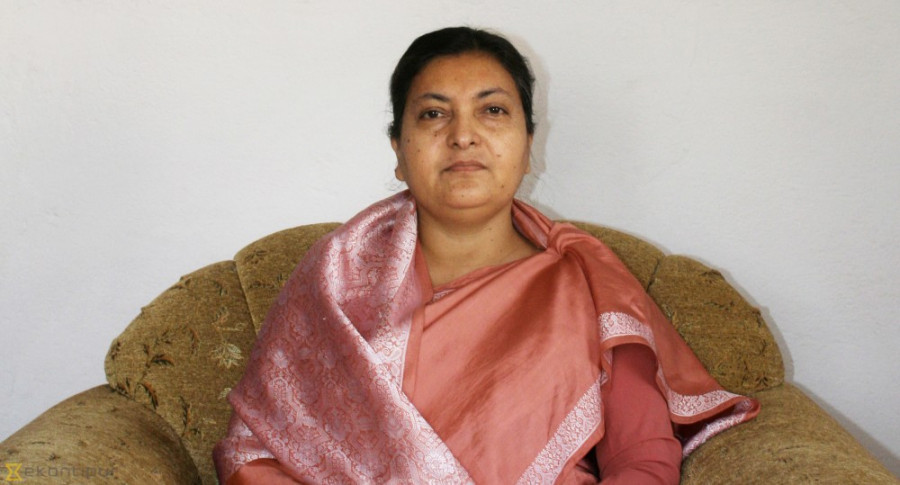National
Ordinance endorsed allowing government larger control to handle coronavirus crisis
Government can now declare emergency, requisition private hospitals and mobilise retired health workers.
Post Report
President Bidya Devi Bhandari has promulgated the Covid-19 Crisis Management Ordinance allowing the government to take various measures to stem the spread of the coronavirus.
The government came up with the ordinance on Thursday amid an unprecedented surge in new Covid-19 infections and deaths across the country. As of Friday, Covid-19 has officially claimed 6,024 lives and infected 497,052 people.
The highlight of the ordinance is allowing the declaration of a health emergency under which the government can requisition private properties and vehicles to utilise them in the effort to stop the spread of the disease.
Even though the existing law also has a provision related to declaration of health emergency, the government came up with an ordinance to declare Covid-19 specific health emergency.
As per the ordinance, the government could take over the management of private hospitals to treat and manage Covid-19 patients.
The ordinance also envisions establishment of a Covid-19 unified central hospital.
Authorities can also have the health of any passengers in vehicles and pedestrians checked under the ordinance.
The ordinance has provisions of a Covid-19 Directive Committee under the prime minister. There will be a Covid-19 Crisis Management Centre under the committee but it will not have a different organisational structure than the current one, in which several ministers are its members. Rather, the centre will have representatives of security services and bureaucrats as members.
The ordinance also states that anyone who violates the orders issued under the ordinance can be fined up to Rs100,000 in case of individuals and Rs500,000 in case of institutions.
It has also proposed Rs100 fine to those who do not wear masks in public and Rs200 to those who violate the restriction or the prohibitory rules.
Likewise, vehicles breaching the restriction will have to pay Rs 2,000 to Rs5,000.
The ordinance also states that for the security of patients, Nepal Army will be mobilised to manage the quarantine,isolation and holding centres in different parts of the country. The Army will be handling the bodies of Covid-19 patients, as it has been doing since last year when the first wave of Covid-19 gripped the country.
The ordinance also allows the government to conscript individuals—either in public service or not, in a fight against the Covid-19 pandemic based on their qualifications.
The government can also employ retired doctors and health workers including doctors who are on leave for study in combating the pandemic. They should compulsorily work as assigned by the government while health workers may not get leave for more than three days. They will however be provided wages for their work.
As per the specification and rate set by the government, the medical goods can be procured.
The ordinance also allows the government to procure the medical goods including vaccine, medicines, oxygen and other medical goods from manufacturers, suppliers and international agencies directly through negotiations by overriding the public procurement rules.




 10.12°C Kathmandu
10.12°C Kathmandu













